Snow Owl: An Interview with Juan Garcia-Herreros

If you haven’t caught on to the incredible playing of Snow Owl, it’s high time you did. The bassist – real name Juan Garcia-Herreros – has been turning heads with a style that synthesizes all of his musical tastes with flavors of jazz, latin music, pop, rock and more.
Part of that special blend comes from his multi-cultural experience. Garcia-Herreros was born in Colombia but moved to New York City when he was nine. After attending Berklee College of Music, he spent more time in New York but ultimately moved to Vienna, Austria, where he currently resides. As a result, he speaks German, Spanish, and English.
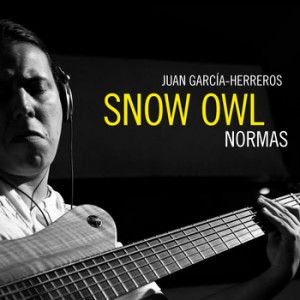 The bassist’s exquisite tone and touch has landed him gigs with stars ranging from Elton John to Al Jarreau, but his musical voice really comes out in his own works. On his latest album, Normas, Garcia-Herreros takes on jazz standards in such a way as to make them brand new songs.
The bassist’s exquisite tone and touch has landed him gigs with stars ranging from Elton John to Al Jarreau, but his musical voice really comes out in his own works. On his latest album, Normas, Garcia-Herreros takes on jazz standards in such a way as to make them brand new songs.
“Each and every established Jazz artist must at one point of his career record a ‘Standards‘ album,” he writes. “It is an homage to the tradition and a proof of his improvisational accomplishments. For Normas (‘standards’ in Spanish) I have accepted this challenge. I have taken the titles of famous Jazz Standard compositions, and translated them into my interpretation of what the Standards of today in Jazz should be.”
We caught up with Garcia-Herreros to get the story behind his creativity, his album, and the challenges faced by modern musicians.
Where does the name Snow Owl come from?
Before I start, I just wanted to say a huge thank you to the No Treble bass community and a big hello to my bass brother Damian Erskine, who writes wonderful columns.
This is probably one of the most asked questions that I get. So I’m sure, if you Google it, you will have the answer faster than I could say it [laughs]. To make a long story short, Snow Owl is my totem spirit.

You started on flute when you were nine years old. How did you make the jump to bass?
My older brother was studying drums and he needed a bass player to practice with, so he bullied me into playing bass. The first notes, that I ever played on the bass was Nirvana’s “Smells Like Teen Spirit”. Four chords, one finger and after 2 hours, one hell of a band-aid [laughs].
Who are your main bass influences?
I am more influenced by drummers than by bass players, because they are the cats I gotta play with all night. We do the dirty work in the back of the stage.
What musicians are you currently listening to?
This year I am focusing on getting to know as much african artists and rhythms as possible. I started with artists from West Africa and I’m slowly moving towards the south. Too many to name, but definitely worth checking out for every bass player.
I understand you taught yourself to play, but you’re now a renowned educator. How do you see the advantages and disadvantages to both approaches (self-taught vs. higher education) to learning?
I always found it ironic, that people go to an institution to learn a style of music, which was created without the institution. It shouldn’t matter if you are a self-taught student or of the university. If you have an open mind, an open heart and a hunger for information, you will always learn from all of your musical experiences.
Your album Normas is fantastic. What is the story behind making it?
Thank you! Normas has been an amazing journey for me, both spiritually and musically. At the end of the recording session all of the musicians were hugging each other and our eyes were full of tears. We achieved a standard (Normas is the Spanish word for “standards”), within an industry that is slowly collapsing. It is unbelievable how many hats a musician has to wear nowadays. For example I was the composer, producer, executive producer, musician and musical director. That alone is the new standard for independent musicians. Musically we attempted to document the standards of our time. By respecting the traditions of jazz we gave our hearts in order to carry the torch forward just a few more miles.
What is your composition process like?
It depends on the emotion and energy of the song. Some songs begin with just a bass riff, some begin with melodies that I compose in my head and others are sketched with harmonies. I tend to write more on the piano so that I don’t compose comfortable things for my instrument. There are songs that are written in one hour and some have taken years. But every day I am always composing something.
Do you keep a practice schedule? What kind of things do you practice?
There was a time in my life, where I used to practice 10 – 12 hours a day. Nowadays I do a minimum of 3 hours a day. Each hour is focused on working on my weaknesses and searching for new directions. Too many people think they are practicing by replying what they know already.
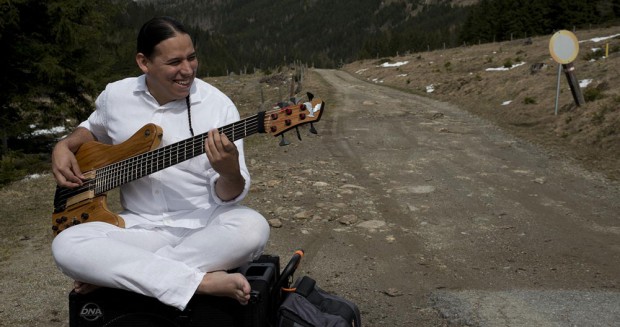
What is the toughest part of making it as a musician, and how do we think we could overcome that?
Making it as a musician has never been a goal or concern for me. It was always more important to ask myself the question: “Am I helping others?”
Music belongs to nobody. We must celebrate it, share it, experience it and be thankful that we still even have it. There are people who use music to make money and then there are the masters that make music because they have to. It’s not their choice, it’s the universal contract with eternity.
What advice would you give to a bassist looking to start a solo career?
Patience. Take inspiration from all the great leaders throughout history. Seek out examples outside of music. Last but not least I will quote the words of a wise shaman, who said to me: “Snow Owl, never hide your feathers!”

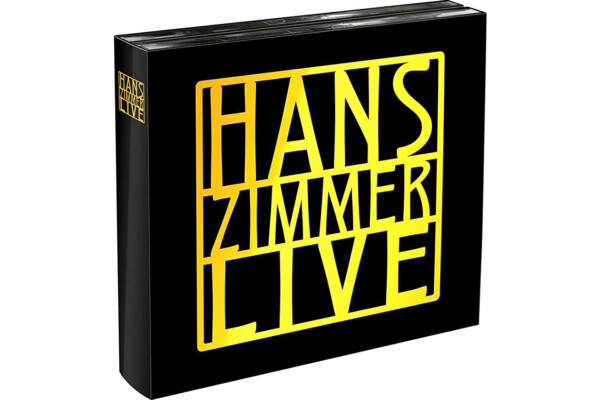
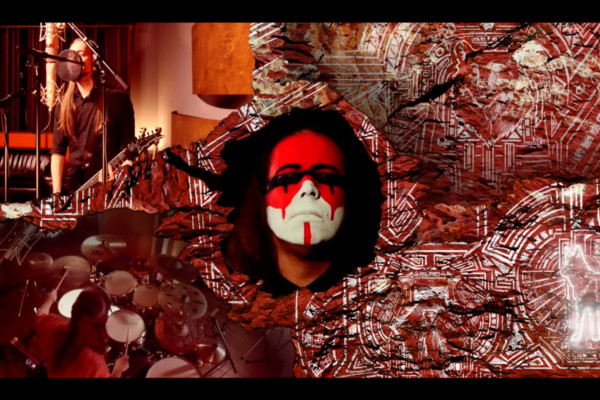
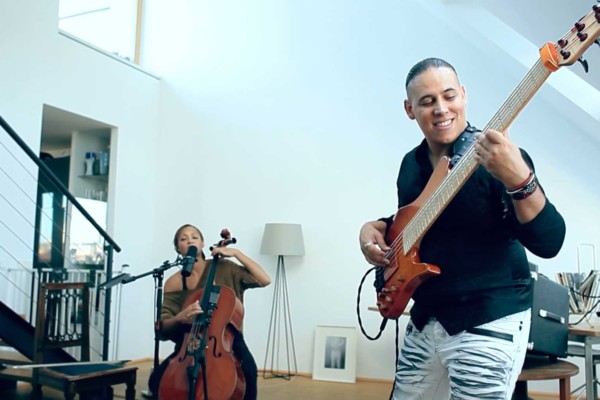
SUCH a lovely player (and a lovely person). You should all definitely check any and all of his albums out. More players in the states should be aware of Juan!
Yes Snow Owl is a huge inspiration!!
Juan is IMO one more living proof of the many wonderful and talented musicians from my country. Too bad most of those great talets have to leave Colombia in order to thrive and pursue a successful career in music, as is the case of many of my closest friends who, as Juan, now live in Europe where they have full recognition.
We are happy to announce the Latin Grammy Nomination for Snow Owl’s “Normas” in the category of Best Latin Jazz Album. This prestigious honor has never been achieved by an Electric Bassist or a Colombian World Jazz Musician !
http://www.latingrammy.com/en/nominees?genre=41
A huge Thank You to all of Snow Owl’s fans for your love and continued support !
Beautiful playing, amazing expression on Map of the World. So musical. And all your answers speak of your pure love of music, encouraging everyone to find their own. Healing words, these are.